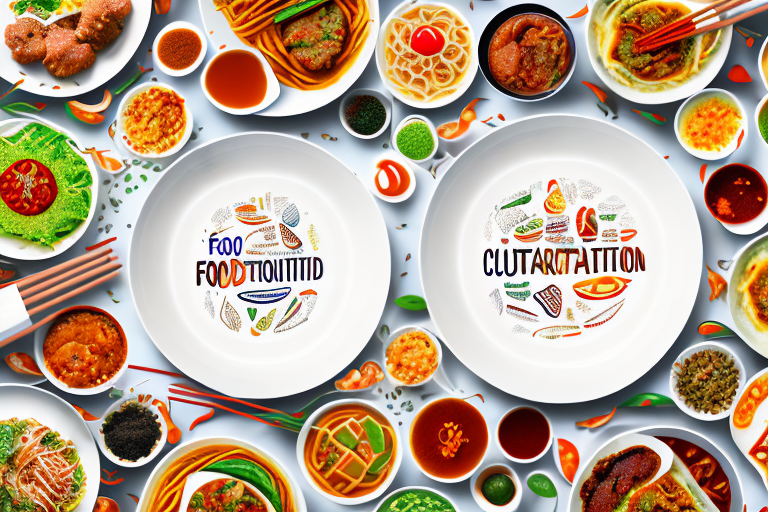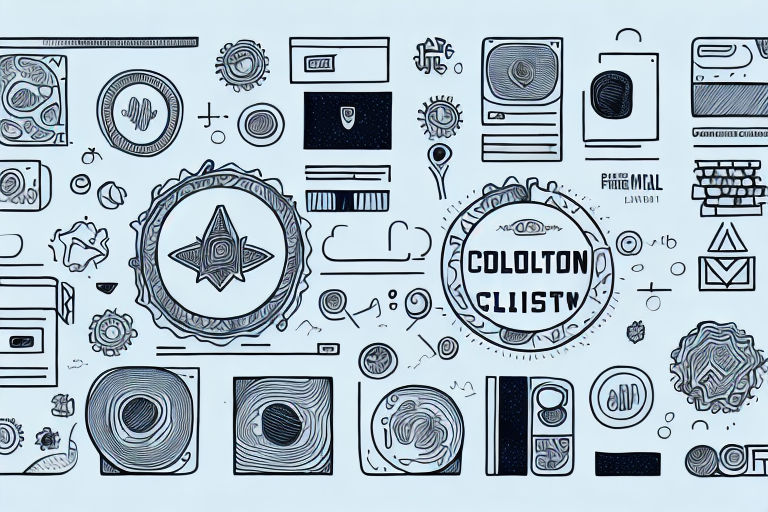Food collaboration is a concept that has gained significant attention in recent years. It involves individuals coming together to share their resources, knowledge, and skills to create and enjoy meals. This collaborative approach to food has several benefits, ranging from enhancing social connections to promoting healthier eating habits. In this article, we will delve deeper into the various aspects of food collaboration and explore its significant advantages.
Understanding Food Collaboration
Before we explore the benefits of food collaboration, it is essential to understand what it truly entails. Food collaboration refers to a collective effort where individuals join forces to cook, share recipes, exchange ingredients, or even host communal meals. This collaborative approach encourages a sense of community and fosters a deeper connection with food and the people around us.
Food collaboration goes beyond simply sharing meals; it involves active participation and engagement in the process of cooking and creating culinary delights. It is about breaking down barriers and coming together as a community to celebrate the joys of food.
Defining Food Collaboration
Food collaboration is a beautiful concept that brings people together through the shared experience of preparing and enjoying meals. It is a way to bridge cultural gaps, promote inclusivity, and foster a sense of belonging. When individuals collaborate in the kitchen, they not only share their skills and knowledge but also their stories, traditions, and unique perspectives.
Imagine a group of friends gathering in a warm and inviting kitchen, each armed with their favorite recipes and ingredients. As they chop, stir, and season, the room fills with laughter, conversation, and the tantalizing aroma of various dishes coming to life. This collaborative effort not only results in a delicious meal but also creates lasting memories and strengthens the bonds between individuals.
The History of Food Collaboration
The concept of food collaboration is not new; it has been a part of human society for centuries. Throughout history, communities have come together to celebrate special occasions and share meals. From ancient feasts to modern potlucks, food collaboration has always played a vital role in fostering connections and building relationships.
In ancient civilizations, communal meals were a way to honor deities, mark significant events, and strengthen social ties. These feasts often involved elaborate preparations, with each member of the community contributing their unique culinary skills and ingredients. The act of collaborating in the kitchen was not only a means to satisfy hunger but also a way to express gratitude, celebrate abundance, and showcase cultural heritage.
As societies evolved, so did the ways in which people collaborated around food. Potlucks became popular, where individuals would bring a dish to share with others. This practice allowed for a diverse array of flavors and cuisines to be enjoyed, while also encouraging creativity and resourcefulness in the kitchen. Potlucks became a symbol of unity, as people from different backgrounds and walks of life came together to break bread and forge new connections.
In recent years, food collaboration has taken on new forms with the rise of social media and online communities. Virtual platforms have made it easier than ever for individuals to connect, share recipes, and organize collaborative cooking events. People can now join virtual cooking classes, participate in recipe exchanges, and even host virtual potlucks, transcending geographical boundaries and bringing together individuals from all corners of the globe.
Food collaboration is not just about the act of cooking; it is a celebration of diversity, creativity, and the power of shared experiences. It is a reminder that food has the ability to bring people together, ignite conversations, and create a sense of belonging. So, the next time you gather around a table with friends, family, or even strangers, remember the beauty and significance of food collaboration.
The Role of Food Collaboration in Society
Food collaboration has a significant impact on society, transcending cultural boundaries. It brings people together, encourages communication, and promotes cultural exchange. Let's explore how food collaboration manifests itself in different cultures and how it has evolved in modern times.
Food Collaboration in Different Cultures
Food collaboration is deeply rooted in various cultures around the world. Different cuisines have unique traditions where collaboration in the kitchen is key. For example, in India, the practice of preparing a meal together during festivals is a cherished tradition. Families and friends come together to chop vegetables, mix spices, and cook a feast that symbolizes unity and celebration. Similarly, in Italy, the Sunday dinner is a time-honored tradition where multiple generations gather in the kitchen to prepare a meal. This collaborative cooking experience not only strengthens family bonds but also allows for the passing down of culinary knowledge and traditions.
In Japan, the concept of "teishoku" embodies food collaboration. Teishoku refers to a set meal that includes a main dish, rice, miso soup, and various side dishes. This style of dining encourages sharing and collaboration as everyone at the table enjoys a variety of flavors and textures. It fosters a sense of togetherness and communal eating.
Furthermore, in many African cultures, communal cooking is a way of life. The process of preparing a meal involves multiple individuals working together, from gathering ingredients to cooking over an open fire. This collaborative effort not only ensures that everyone is fed but also strengthens social bonds and promotes a sense of unity within the community.
Food Collaboration in Modern Times
In today's fast-paced world, food collaboration has taken on new forms. With the rise of social media, online platforms, and cooking communities, individuals from diverse backgrounds can connect and collaborate virtually. People now share recipes, cooking tips, and ideas, breaking down geographical barriers and creating a global food community.
Online platforms such as food blogs, YouTube channels, and recipe-sharing websites have become hubs for food collaboration. Home cooks and professional chefs alike share their culinary creations, techniques, and experiences, inspiring others to try new recipes and explore different cuisines. This virtual collaboration not only expands culinary horizons but also fosters a sense of camaraderie among food enthusiasts.
Furthermore, cooking competitions and food festivals have become popular events that promote food collaboration. These gatherings bring together chefs, food vendors, and food lovers to celebrate and showcase diverse cuisines. Participants collaborate, exchange ideas, and learn from one another, resulting in a rich tapestry of culinary experiences.
Additionally, initiatives such as community gardens and food cooperatives encourage collaboration at a local level. These projects bring people together to grow and harvest food collectively, fostering a sense of community and promoting sustainable practices. By working together, individuals not only share the workload but also create opportunities for social interaction and skill-sharing.
In conclusion, food collaboration plays a vital role in society, both in traditional cultures and modern times. It brings people together, strengthens social bonds, and promotes cultural exchange. Whether it's cooking together during festivals, connecting through online platforms, or participating in food-related events, collaboration in the realm of food enhances our lives and creates a sense of unity among diverse communities.
The Benefits of Food Collaboration
The benefits of food collaboration extend beyond the culinary realm. Let's explore some of the significant advantages individuals can enjoy by participating in collaborative food practices.
Health Benefits of Food Collaboration
Participating in food collaboration can have profound effects on our health. When we collaborate with others in the kitchen, we exchange ideas and learn about different cooking techniques, ingredients, and nutritional values. This exchange of knowledge can lead to healthier eating habits and a more diverse diet.
For example, imagine a group of friends coming together to prepare a meal. Each person brings their unique expertise and knowledge about nutrition. One friend may be well-versed in plant-based cooking, while another may specialize in gluten-free recipes. Through collaboration, they can share their knowledge and create a meal that caters to everyone's dietary needs and preferences.
Furthermore, when we collaborate in the kitchen, we are more likely to experiment with new ingredients and cooking methods. This can introduce us to a wider range of flavors and nutrients that we may not have otherwise explored. By expanding our culinary horizons, we can enhance our overall health and well-being.
Social Benefits of Food Collaboration
Food collaboration brings people together, fostering a sense of community and belonging. When we cook and share meals with others, we forge strong social connections and create lasting memories. Collaborative cooking can also promote teamwork, communication, and problem-solving skills, making it a valuable learning experience.
Imagine a family gathering where multiple generations come together to prepare a traditional recipe. As they work side by side, grandparents pass down their wisdom and techniques to younger family members. This not only strengthens family bonds but also preserves cultural traditions and heritage.
Collaborative cooking can also be a great way to meet new people and expand our social circles. Joining a cooking club or attending a cooking class allows us to connect with like-minded individuals who share our passion for food. Through shared experiences and a common interest, we can form meaningful friendships that extend beyond the kitchen.
Additionally, food collaboration can be a powerful tool for community building. Whether it's organizing a potluck dinner or participating in a community garden, collaborative food practices bring people together around a common goal. These shared experiences foster a sense of belonging and create a supportive network within the community.
In conclusion, food collaboration offers numerous benefits that go beyond the culinary realm. From improving our health through knowledge exchange to fostering social connections and community building, collaborative food practices have the power to enhance our lives in meaningful ways.
The Future of Food Collaboration
As we look ahead, it is evident that food collaboration will continue to evolve and play a significant role in our society. Technological advancements and changing societal norms are reshaping the way we connect and collaborate. Let's explore some predicted trends and the impact of technology on food collaboration.
Predicted Trends in Food Collaboration
Experts predict that food collaboration will expand further in the coming years. People will continue to embrace the sharing economy, leading to an increase in food-sharing initiatives, community gardens, and cooperative cooking spaces. These trends signify a shift towards more sustainable, community-driven food practices.
The Role of Technology in Food Collaboration
Technology has already transformed how we collaborate and share food. From online platforms that connect home cooks to apps that facilitate ingredient exchanges, technology has made it easier than ever to engage in food collaboration. As technology continues to advance, we can expect even more innovative ways to connect and collaborate in the culinary world.
In conclusion, food collaboration offers numerous benefits, both individually and for society as a whole. By understanding and embracing this concept, we can forge stronger connections with people and food, promote healthier lifestyles, and nurture a sense of belonging. As we move forward, let us continue to explore the endless possibilities that food collaboration brings and harness its power to create a more vibrant, inclusive, and sustainable food culture.
Collab with brands and creators. Request your invite at collabs.io



